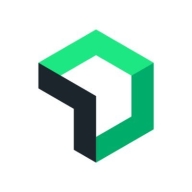

Splunk Enterprise Security and New Relic compete in the application monitoring and security space. Splunk stands out for extensive data handling and real-time alerting, while New Relic excels in application performance monitoring, especially for developers.
Features: Splunk Enterprise Security is known for its ability to handle massive data sets with rapid searching and operational intelligence. It offers flexible dashboard creation and integrates with various data sources, utilizing schema-on-read technology to store raw data without preparation. New Relic provides efficient application performance monitoring with real-time insights and extensive dashboard options, ideal for server and application monitoring with quick implementation and high-level programmer access.
Room for Improvement: Splunk's user interface could be improved, along with better support for cluster management and cost model refinement. The documentation's complexity and steep learning curve indicate a need for better onboarding resources. New Relic could enhance alerting capabilities, expand AWS integrations, and clarify pricing models while addressing data privacy concerns and improving error reporting.
Ease of Deployment and Customer Service: Splunk offers multiple deployment models, such as on-premises, hybrid, and public cloud, demonstrating flexible integration capabilities with good community support but needing quicker technical response time. New Relic, primarily deployed on public cloud, is praised for its easy setup and integration within AWS marketplaces, with generally responsive customer service, though its pricing complexity poses challenges.
Pricing and ROI: Splunk's data ingestion-based pricing is often seen as high, which can be prohibitive for smaller companies. However, it provides significant ROI through enhanced operational efficiencies and reduced incident response times. New Relic's pricing is seen as more reasonable, with tiers that suit various organizational needs. Both solutions are costly, but their capabilities align well with customer requirements, resulting in high perceived value and ROI.
Splunk's cost is justified for large environments with extensive assets.
Issues that could be solved quickly sometimes take longer because they go around in circles.
If you want to write your own correlation rules, it is very difficult to do, and you need Splunk's support to write new correlation rules for the SIEM tool.
The technical support for Splunk met my expectations.
It is easy to scale.
They struggle a bit with pure virtual environments, but in terms of how much they can handle, it is pretty good.
It provides a stable environment but needs to integrate with ITSM platforms to achieve better visibility.
It is very stable.
Email alert customization is limited; it cannot be tailored much, which makes the system more rigid than optimal.
Splunk Enterprise Security would benefit from a more robust rule engine to reduce false positives.
What Splunk could do better is to create an API to the standard SIEM tools, such as Microsoft Sentinel.
Data retention can be better. If we want to look at the data for five months or six months, that is not available to us. We only have a history of 20 or 30 days.
The platform requires significant financial investment and resources, making it expensive despite its comprehensive features.
I saw clients spend two million dollars a year just feeding data into the Splunk solution.
Splunk is priced higher than other solutions.
Using New Relic speeds up troubleshooting and resolution, giving us a clearer picture of where issues are, thus saving time and effort.
This capability is useful for performance monitoring and issue identification.
They have approximately 50,000 predefined correlation rules.
Splunk Enterprise Security's most valuable features are its stability and the robust Splunk Search Processing Language.


New Relic is a powerful tool for optimizing web pages, tracking user behavior, and monitoring application performance. It helps detect anomalies, generate metrics, and create dashboards for synthetics monitoring, container workloads, stress tests, and more.
New Relic provides organizations with comprehensive insights into APIs, infrastructure, and scalability. It supports mobile and web applications with features like java tracking, health maps, customizable dashboards, and drill-downs. Users benefit from its easy initial setup, accurate alerts, UI monitoring, error tracking, and traceability. New Relic supports multiple ecosystems with straightforward pricing and new feature introductions, offering end-to-end monitoring, thorough data analysis, and effective problem resolution.
What are New Relic's most important features?New Relic is leveraged in industries such as e-commerce, finance, and technology. It helps monitor web traffic, evaluate load balancing, and ensure applications meet performance standards. Companies use it for stress tests, container-based workloads, API monitoring, and infrastructure management. Its integration capabilities are valuable for maintaining performance and scalability across diverse ecosystems, aiding in thorough data analysis and problem resolution.
Splunk Enterprise Security is widely used for security operations, including threat detection, incident response, and log monitoring. It centralizes log management, offers security analytics, and ensures compliance, enhancing the overall security posture of organizations.
Companies leverage Splunk Enterprise Security to monitor endpoints, networks, and users, detecting anomalies, brute force attacks, and unauthorized access. They use it for fraud detection, machine learning, and real-time alerts within their SOCs. The platform enhances visibility and correlates data from multiple sources to identify security threats efficiently. Key features include comprehensive dashboards, excellent reporting capabilities, robust log aggregation, and flexible data ingestion. Users appreciate its SIEM capabilities, threat intelligence, risk-based alerting, and correlation searches. Highly scalable and stable, it suits multi-cloud environments, reducing alert volumes and speeding up investigations.
What are the key features?Splunk Enterprise Security is implemented across industries like finance, healthcare, and retail. Financial institutions use it for fraud detection and compliance, while healthcare organizations leverage its capabilities to safeguard patient data. Retailers deploy it to protect customer information and ensure secure transactions.
We monitor all IT Operations Analytics reviews to prevent fraudulent reviews and keep review quality high. We do not post reviews by company employees or direct competitors. We validate each review for authenticity via cross-reference with LinkedIn, and personal follow-up with the reviewer when necessary.